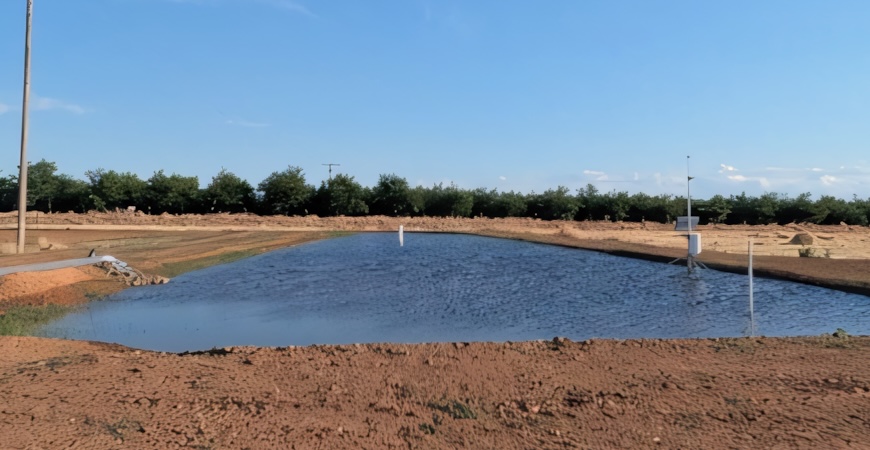
A UC Merced team competing in a U.S. Department of Energy contest won its division with a proposal to use floating solar panels to power the campus's Experimental Smart Farm.
The Solar District Cup is a collegiate competition that challenges teams to design and model distributed energy systems for a mixed-use campus or district - groups of buildings with a common electrical distribution feeder, according to the Department of Energy. Students work across disciplines such as engineering, finance, urban planning, sustainability and communications to reimagine how energy is generated, managed and used.
Nearly 70 teams from universities around the nation registered for the contest. UC Merced's team emerged as one of six division winners; a team from Drexel University in Philadelphia won the final.
UC Merced team members said their proposal had four goals:
- The solar panels would float in the smart farm's pond.
- The system would have net-zero emissions.
- It would provide all power for the farm.
- It would operate off the public power grid.
Team members were Matthew Lansing, Adan De La Cueva Perez, Shariful Islam, Flo Dotta, Evan Luu Miguel Avalos, John Kim, Xiaodong Yang, Hossein Ashrafpour, Reyli Reynaga Banuelos, Javier Miramontes, Charles Bodoh and Miguel Craven.
The Solar Cup Challenge requires students to tackle the system's design as well as evaluate its practical impacts - whether it will be financially feasible and provide sufficient electricity for the client. This was the first year UC Merced competed in the event, said electrical engineering Professor Sarah Kurtz, who mentored the team along with its advisor, electrical engineering Professor Eric Cheng.
For the finals, student teams had six minutes to present their projects to a panel of judges. The UC Merced team discussed how it addressed various challenges, such as planning for cloudy days and installing the panels in a way that allowed for a walkway for cleaning and maintenance.
They estimated their project would provide substantial long-term savings and pay for itself within the first year. The idea for the floating solar array originated through a suggestion by Chancellor Juan Sánchez Muñoz, Kurtz said.
All of the team projects were designed to address real-world situations.
"The demand for electricity is growing fast," said Alejandro Moreno, associate principal deputy assistant secretary for the Office of Energy Efficiency and Renewable Energy. He pointed out that the energy industry is also growing, with more than 250,000 jobs added in recent years.
"Exposing students to these challenges is crucial to prepare them for jobs in this workforce," Moreno said.



